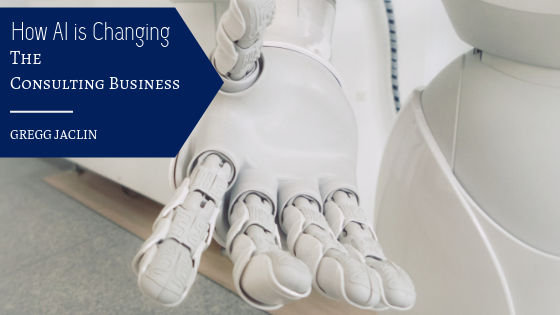For more than a century, consultants have served as advisors for individuals and businesses alike, guiding them with financial, technological, and personal decisions. The advancement of artificial intelligence programs has brought with it the question of whether consultants will be among the displaced professionals when AI develops additional capabilities. However, the effects of AI on the consulting industry will be largely positive if applied effectively.
Data Analytics
With enhanced proficiency in recognizing patterns and cataloging information, artificial intelligence programs could serve as a buffer between immense amounts of raw data and consultants. While human analysts are skilled, AI has the capacity to conduct such analysis much more quickly than any one individual could. Artificial intelligence programs, when integrated to serve this purpose, could eliminate the risk of human error and accelerate the speed at which consulting firms acquire organized data for human analysis.
Time Management
When freed from repetitive tasks that accompany analytics and data entry, consultants will have more time to apply themselves to more arduous, intellectual tasks. Because of this, consultants will become more efficient, effective, and productive. Taking away time-consuming, mundane tasks like organizing schedules, ordering supplies, and recording conversations grants more time for consultants of all experience levels to better conduct business without wasting time and effort on tedious, albeit necessary, objectives.
Shifting Role of the Consultant
Rather than collecting and identifying patterns in new data, consultants will be tasked with making sense of existing information and applying their conclusions to future markets. Though artificial intelligence programs have increased capabilities of collecting, organizing, and quantifying information, they fail to effectively formulate and implement new strategies, identify new trends, and comprehend new technologies.
In some ways, the integration of artificial intelligence creates a space for consultants to fill when it comes to understanding how to utilize the capabilities and functions of AI. Of course, consultants will serve other purposes, as well, but artificial intelligence presents new opportunities for consultants to adapt and advise.
Though some articles may argue that the consulting business will be rendered obsolete by artificial intelligence, this is simply not the case. By employing artificial intelligence in the consulting industry, human consultants will be able to access data quickly and craft creative, customized solutions to problems that AI programs would be unable to conceive. The consulting business will surely change with the implementation of AI, but the programs should be used as tools to improve the industry and individual performance.

